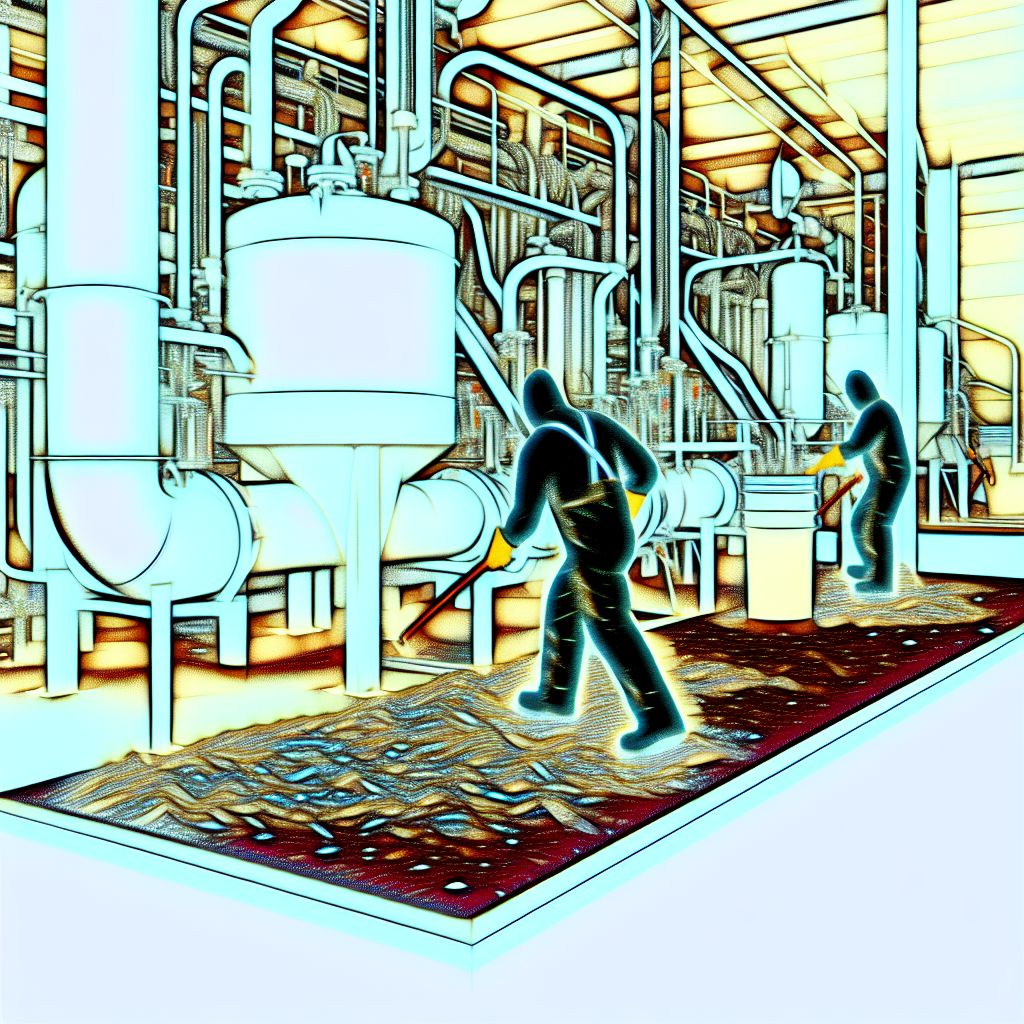Deutsch: Filtration / Español: Filtración / Português: Filtração / Français: Filtration / Italiano: Filtrazione
Filtration in the context of quality management refers to the process or technique used to separate unwanted materials or impurities from products, substances, or environments to ensure they meet specified quality standards. It's a critical operation in many industries where purity, cleanliness, and compliance with health and safety standards are paramount. Filtration can involve the use of physical barriers, chemical processes, or biological agents to remove solids, liquids, or gases from a medium, ensuring the final product's or environment's quality and safety.
Description

In quality management, filtration is employed as a means of quality control and assurance, integral to maintaining product integrity, protecting equipment, and ensuring a clean manufacturing environment. The process is designed to meet regulatory requirements, industry standards, and customer expectations. Effective filtration contributes to product consistency, process reliability, and overall operational efficiency.
Application Areas
Filtration is applied across various aspects of quality management in industries such as:
- Pharmaceuticals and Healthcare: Sterilizing liquids and gases used in manufacturing processes and patient care settings to remove contaminants and prevent infections.
- Food and Beverage: Ensuring the safety and quality of products by removing particulate matter and microorganisms from ingredients and processing environments.
- Water Treatment: Purifying water for industrial use or consumption by removing harmful substances and pathogens.
- Manufacturing: Protecting machinery and products from contamination by filtering air and fluids within production facilities.
- Air Quality Management: Maintaining clean air in manufacturing and office environments to protect employee health and sensitive equipment.
Well-Known Examples
An example of filtration in quality management can be found in the semiconductor manufacturing industry, where ultra-pure water is essential for cleaning silicon wafers. Any impurities can interfere with the microfabrication process of semiconductors. Filtration systems are used to remove these impurities, ensuring the water meets the stringent purity standards required for this process.
Treatment and Risks
The absence of effective filtration processes can lead to product contamination, increased waste, equipment damage, and Non-Compliance with regulatory standards, posing significant risks to public health and safety. To mitigate these risks, it is crucial to design and maintain filtration systems appropriately, conduct regular performance monitoring, and ensure filters are replaced or cleaned as required to maintain effectiveness.
Similar Terms or Synonyms
In the context of quality management, related terms to filtration include purification, separation, and clarification.
Weblinks
- environment-database.eu: 'Filtration' in the glossary of the environment-database.eu
- top500.de: 'Filtration' in the glossary of the top500.de
- umweltdatenbank.de: 'Filtration' im Lexikon der umweltdatenbank.de (German)
Summary
Filtration in quality management is a vital process for removing unwanted materials or impurities to achieve and maintain high-quality standards in products, processes, and environments. By implementing effective filtration techniques, organizations can ensure product safety, regulatory compliance, and customer satisfaction across various industries.
--
Related Articles to the term 'Filtration' | |
| 'Decontamination' | ■■■■■■■■■■ |
| Decontamination in the context of quality management refers to the process of removing or neutralizing . . . Read More | |
| 'Contamination' | ■■■■■■■■ |
| Contamination in the quality management context refers to the presence of an unwanted substance or impurity . . . Read More | |
| 'Purity' | ■■■■■■■ |
| Purity in the context of quality management refers to the absence of contaminants, impurities, or unwanted . . . Read More | |
| 'Air Quality' | ■■■■■■■ |
| Air Quality: Air quality in the quality management context refers to the measurement and control of the . . . Read More | |
| 'Sanitation' | ■■■■■■■ |
| In the Quality management context, sanitation refers to the processes and practices that ensure cleanliness, . . . Read More | |
| 'Sterilization' | ■■■■■■ |
| Sterilization in the quality management context refers to the process of eliminating or killing all forms . . . Read More | |
| 'Sediment' | ■■■■■■ |
| Sediment in the quality management context refers to particulate matter that settles at the bottom of . . . Read More | |
| 'Separator' | ■■■■■■ |
| Separator in the context of quality management is a device or process used to separate different materials, . . . Read More | |
| 'Filter' | ■■■■■■ |
| Filter in quality management refers to a mechanism or tool used to separate, refine, or sort data, materials, . . . Read More | |
| 'Environmental Monitoring' | ■■■■■■ |
| Environmental Monitoring: Environmental monitoring in the quality management context refers to the systematic . . . Read More | |
